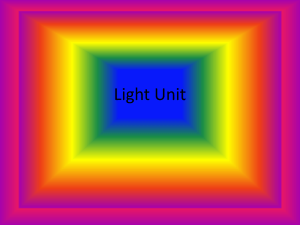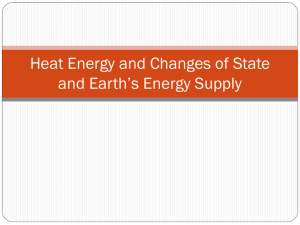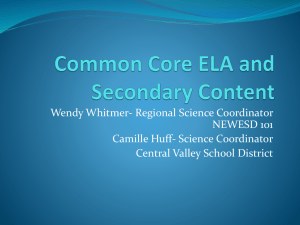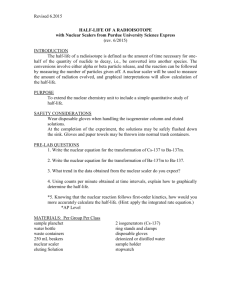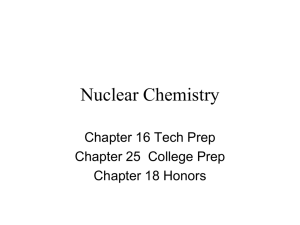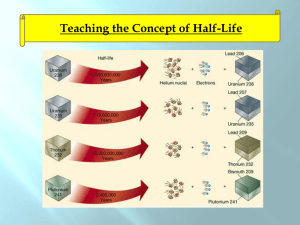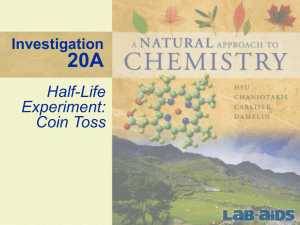Nuclear Energy
advertisement
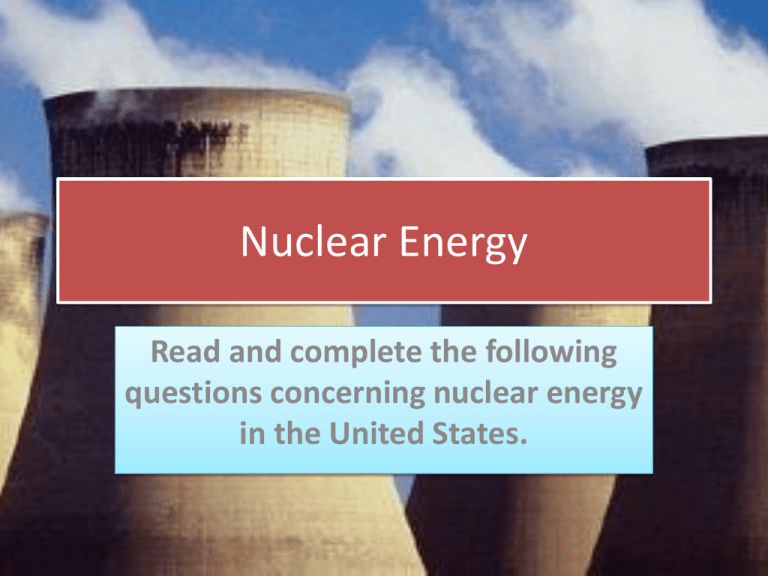
Nuclear Energy Read and complete the following questions concerning nuclear energy in the United States. Nuclear Energy 1.Describe nuclear energy? 2.Describe the difference between fission and fusion. Provide an example of each. 3.What’s a half-life? How is it measured? 4.What are the BENEFITS and DRAWBACKS to nuclear energy? Nuclear Waste 5.What is nuclear waste? 6.What are the issues concerning nuclear waste? 7.What are possible solutions to the United States nuclear waste problem? Half-Life Problems 8. A sample of radioactive waste has a half-life of 10 years and an activity level of 2 curies. After how many years will the activity level of this sample be 0.25 curie? 9. Uranium-235 has a half-life of 710 million years. If it is determined that a certain amount of stored U-235 will be considered safe only when its radioactivity has dropped to 0.10 percent of the original level, approximately how much time must the U-235 be stored securely to be safe? 10. Plutonium-239 has a half-life of 24,000 years. How long will a sample need to be kept in safe storage before it decays to a safe level (0.10)? Half-Life Problems 11. Half-Life Problems 12. Half-Life Problems 13. Nuclear Power Plants in USA Yucca Mountain Yucca Mountain, Nevada 14. Why was Yucca Mountain chosen as a possible repository of nuclear waste? Examine the location of nuclear power sites in the USA. (Previous Slide) Possible repository site for nuclear waste. 15. What potential issues/hazards may arise in transporting the nuclear waste to Yucca Mountain. Nuclear Disaster: Chernobyl, Russia 16. What are the consequences of radiation exposure? Nuclear Disaster: Three Mile Island, PA 17. Explain what happened. Nuclear Disaster: Fukushima - 2011 Nuclear Disaster: Fukushima - 2011 18. Explain the relationship between plate tectonics and the nuclear disaster at Fukushima. Include: • Names of plates • Type of boundary
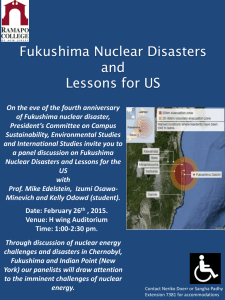


![The Politics of Protest [week 3]](http://s2.studylib.net/store/data/005229111_1-9491ac8e8d24cc184a2c9020ba192c97-300x300.png)
